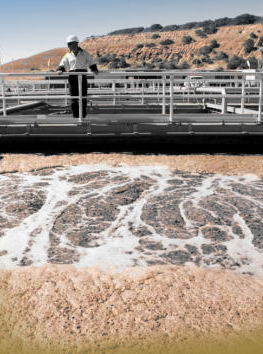Beer brewed into green power
 Millions of litres of beer that expired while the South Australian hospitality industry was shut down has been used to brew renewable energy.
Millions of litres of beer that expired while the South Australian hospitality industry was shut down has been used to brew renewable energy.
Digesters at SA Water’s Glenelg Wastewater Treatment Plant have used expired beer to boost renewable energy generation to 654 megawatt hours in a single month.
The unused beer from local South Australian breweries was repurposed on-site and converted into electricity to power the plant’s treatment processes, reducing wastage and benefiting the environment.
SA Water Senior Manager Production and Treatment Lisa Hannant says the beer was liquid gold for the digesters and fuelled record energy generation at the plant.
“Our Glenelg Wastewater Treatment Plant has always been a strong performer in generating its own energy from biogas and the addition of ales and lagers took it to new heights amid the shutdown,” Ms Hannant said.
“Glenelg’s co-digestion program adds high strength organic waste from industry to sludge from the sewage treatment process, which is heated in the oxygen-free environment of the large sealed concrete digester tanks so it breaks down through natural bacterial metabolic processes and releases biogas.
“Harnessing the power of biogas through our on-site gas engines creates renewable energy for the treatment plant and a sustainable alternative for industrial waste that’s otherwise difficult to dispose of and treat.
“Beer’s high calorific load and methane potential means it’s perfect for co-digestion and by adding around 150,000 litres of expired beer per week, we generated a record 355,200 cubic metres of biogas in May and another 320,000 cubic metres in June, which is enough to power 1,200 houses.
“Honourably, our thirsty digesters have been doing their bit for the environment by drinking themselves silly and with such a horrific diet it’s no wonder they produce so much gas!”
Prior to their recently developed taste for beer, the digesters would typically generate enough biogas to provide around 80 per cent of the Glenelg facility’s energy needs.
“Many businesses have been impacted by the restrictions in place to stop the spread of COVID-19 and this is just one example of how industry has remained resilient and adapted to ensure their resources aren’t wasted, while enabling an outcome for the environment,” Ms Hannant said.







 Print
Print